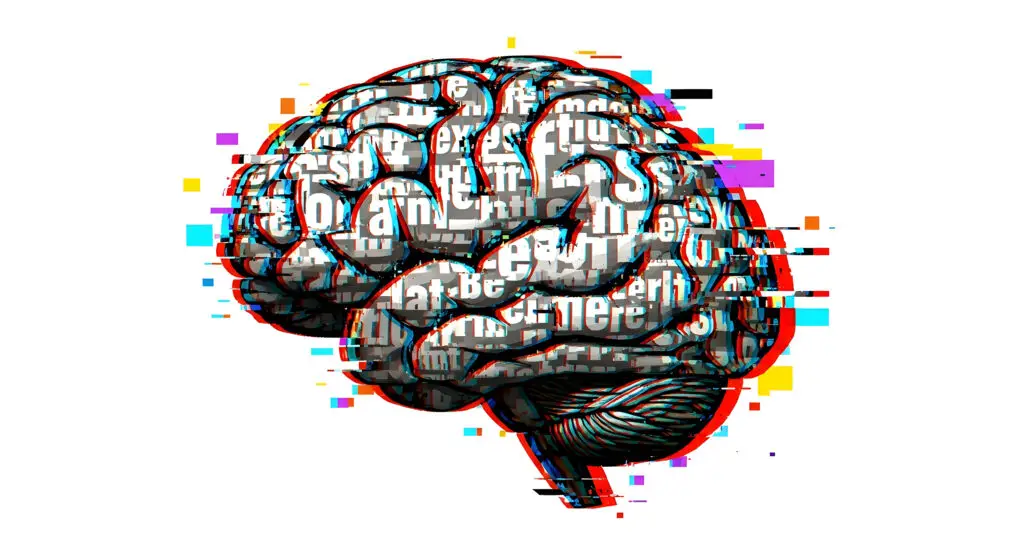A child who grows up in a narcissistic family will develop a distorted view of the world and themselves. This is their trauma bias. They will have difficulties in thinking clearly and accurately at times and in seeing the world in a realistic way.
Listed below are some of the ways in which cognitive errors or distortions show up:
All or Nothing Thinking
All or nothing thinking (also known as black and white thinking) is thinking in extremes and it means that things, situations or people are experienced as all good or all bad and there is little awareness of nuanced or grey thinking. In terms of relationships with other people, it can mean that we have to either deny reality to keep a person in the role we are holding them in or we have to change them to the opposing position. This results in unstable on and off relationships.
Magnification and Minimisation
When we magnify events we overestimate the importance of them and when we minimise events we discount the importance of them.
Emotional Reasoning
When we reason emotionally, we attribute facts to our emotional state, i.e.,
- I feel guilt so I must be doing something wrong
- I feel shame so I must be a bad person
- I feel embarrassed so I must be an idiot
This is going to be inaccurate a lot of the time.
Jumping to Conclusions
Our beliefs influence the way we see the world and we may quickly reach a conclusion based on those beliefs, i.e.,
- There is no point in asking for a pay rise as I will never get one
Catastrophising
Catastrophising or worst case scenario thinking is when we expect the worst possible outcome.
- If my partner leaves me, I will be alone forever
In a narcissistic family, the worst possible outcome is a regular occurrence and so becomes an expectation which needs to be predicted at a minimum and defended against if possible. This is an appropriate defence in childhood which becomes unrealistic in adulthood.
Personalisation
Personalisation is when a person takes too much or too little responsibility for a situation.
Mental Filtering
When we filter things mentally our confirmation bias is in action. This means we accept information that confirms our current beliefs and reject information which doesn’t. This can lead to flawed decision making and a reinforcing of the opinions we hold. Our beliefs are likely to be inaccurate if we have not worked through our trauma.
Positive experiences may not be seen as genuine, they don’t count or they are because of luck. On a day when nothing particularly bad happens, we may find ourselves focusing on a small negative thing which occurred rather than the positive ones.
Mind Reading
When we read a person’s mind, it means we imagine we know what they are thinking and our assumptions may not be accurate, i.e.,
- we may assume that when our manager at work wants to talk to us they have a complaint or they are going to fire us
- we may assume that if our partner is quiet they are angry with us
Mind reading can often be based on how we are feeling in a particular moment, i.e., if we feel embarrassed about something we are likely to think that people are looking at us as though we are an idiot.
I Should... I Ought to... I Must...
When we use the language of ‘must,’ ‘should’ and ‘ought to,’ it can mean we feel obliged to think and act in certain ways but do not actually want to i.e.,
- I ought to go out more
- I should visit my (narcissistic) parent
It shows that we have fixed ideas of how life is and how it should be rather than how life actually is:
- The world should be fairer than this
- I must not get anything wrong or make any mistakes
Should, ought and must statements are often demanding and rigid. This type of language is often used when we are berating and correcting ourselves when our harsh inner critic is in action.
- You should be working harder!
Over-generalising
When we overgeneralise we see patterns based upon single events. If we have had one bad experience then that situation will be repeated.
Lack of 'Object Constancy'
If we lack object constancy it means we struggle to hold our good, positive and loving feelings about a person in mind when we are disappointed or angry with them.
This is related to all or nothing thinking and both are common consequences of growing up with a narcissistic parent. The article below is written about narcissists but is applicable to many who have come from a narcissistic family in terms of there being a lack of whole object relations and object constancy. In a healthy family, whole object relations are developed in childhood.
Read more here:








This Post Has 2 Comments
I need to find a support group or something, I don’t think I can get through this on my own anymore. I have a four year old and I want to be strong and better but my mother definitely has this disorder and no one else can see it. The damage is real and I think the only way to not go back and let her carry on harming us is by finding others and being able to live as I am, authentically. Attempting to forget and just trying to create boundaries and moving on never worked, I need to acknowledge this and be believed.
Could anyone reading this suggest any good support groups?